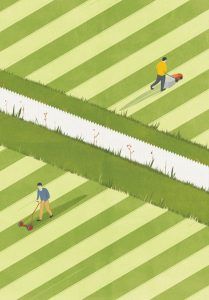Bo Rothstein in Scientific American:
 An abundance of social science research indicates that high economic inequality comes along with several undesirable outcomes, such as higher levels of violence and lower levels of health, happiness and satisfaction with life. But inequality has been rising in almost all developed countries since the 1970s, which raises an important question. If high inequality is detrimental to the well-being of a large majority of the populace and if democracy is about realizing “the will of the people,” why has inequality been allowed to increase in most democracies? Put differently, if most people would benefit from enhancing equality, why have voters not elected politicians who would implement policies to do that? This is one of the most significant paradoxes of our time.
An abundance of social science research indicates that high economic inequality comes along with several undesirable outcomes, such as higher levels of violence and lower levels of health, happiness and satisfaction with life. But inequality has been rising in almost all developed countries since the 1970s, which raises an important question. If high inequality is detrimental to the well-being of a large majority of the populace and if democracy is about realizing “the will of the people,” why has inequality been allowed to increase in most democracies? Put differently, if most people would benefit from enhancing equality, why have voters not elected politicians who would implement policies to do that? This is one of the most significant paradoxes of our time.
Scholars provide a variety of explanations: Some point to the limited foresight, knowledge and rationality of voters. Others argue that the increased power of money in politics has prevented politicians who would launch redistributive policies from coming to power. A third view is that economic changes have weakened the power of trade unions, which used to be a strong force supporting equality. A fourth argument is that the political agenda has changed.
More here.
